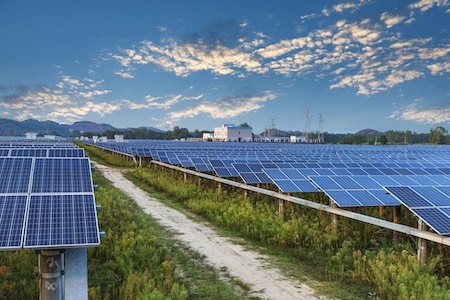
By Alex White, columnist ~ “Small towns, big potential”
As we all know, the recent solar panel saga was one of the most divisive episodes in recent Page County history. With a strange mix of environmentalists, businessmen, and misinformation on both sides, we saw our citizens get passionate about the prospect of two solar developments in Page County.
My own position has always been that growth was good, as long as we make sure that it means jobs and resources that can stay in Page County. That is a high standard, considering those projects would inevitably send energy elsewhere and likely create temporary jobs that wouldn’t accrue to residents in the long term (in addition to being downright eyesores).
Thankfully, the Virginia government has helped to address that high standard; as of July 1, it is legal for localities to demand (and enforce) specific payments from a solar development in exchange for allowing the developer’s activities. This can include everything from revenue-sharing (direct payment based on each Kilowatt produced) to other schemes. These funds could then be used for local priorities such as schools and other improvements.
This marks one of the biggest expansions of local power in the history of Virginia (a state where the Dillon Rule severely limits localities otherwise). It is my belief that we should take advantage of this legal provision as we consider what to do about future solar development. In doing so, we can actually guarantee a direct benefit to our citizens in exchange for their trouble.
Rural counties are already using this approach to secure the funds that they need for big projects like countywide broadband internet access and other things that would be impossible at a time when tax revenue is decreasing as a result of COVID-19.
I will be mentioning this to the Economic Development Authority; in the meantime, here is an excerpt from a helpful Daily Press story that outlines the benefits of this new legislation:
“(The new changes allow) talks between solar developers and rural county officials about ways the industry could lend… financial help to some of the state’s most forgotten corners. (Several counties) are already working with solar firms on proposals made possible by (the) two new laws that took effect July 1,” the article states.
“In Surry’s case, one of the new bills means the county will get $1,400 a year for each megawatt produced at a new solar farm about three miles southwest of Surry Court House. That adds up to $84,000 a year,” the article continues. “A second solar bill has opened the door for (another county,) King and Queen, to obtain $4 million it needs to provide fiber-based broadband service to everyone in the county, with the county talking with a solar firm about a proposed 149.4 megawatt facility on more than 1,300 acres… That bill authorizes local governments to negotiate financial or other aid from solar developers, in much the same way they can negotiate with developers of residential subdivisions — but with a lot more flexibility than that limited authority allows. (The new law) says local officials can tell solar developers what the community needs, and that their requests aren’t limited to the direct impact of a development on public services.”
With Dominion Energy planning, “to add at least 5,200 megawatts of solar generating capacity over the next 25 years,” rural Virginia could see a new “Solar Gold Rush” — one that actually has direct benefits for counties like ours.
If we keep this new rule in mind, we will stand better prepared to benefit if the solar question is raised again at any point in the future.
•••
Jack “Alex” White is a student at Harvard University, where he is studying Government. While there, he has become the Policy Director for Harvard Undergraduates for Bipartisan Solutions (HUBS) and Senior Content Editor for the Harvard Economics Review. Alex is a lifelong native of Page County and graduate of Luray High School.
PREVIOUS COLUMNS ~ “Small towns, big potential”
FOLLOW-UP on Telehealth: A ‘shot in the arm’ for places like us



Be the first to comment